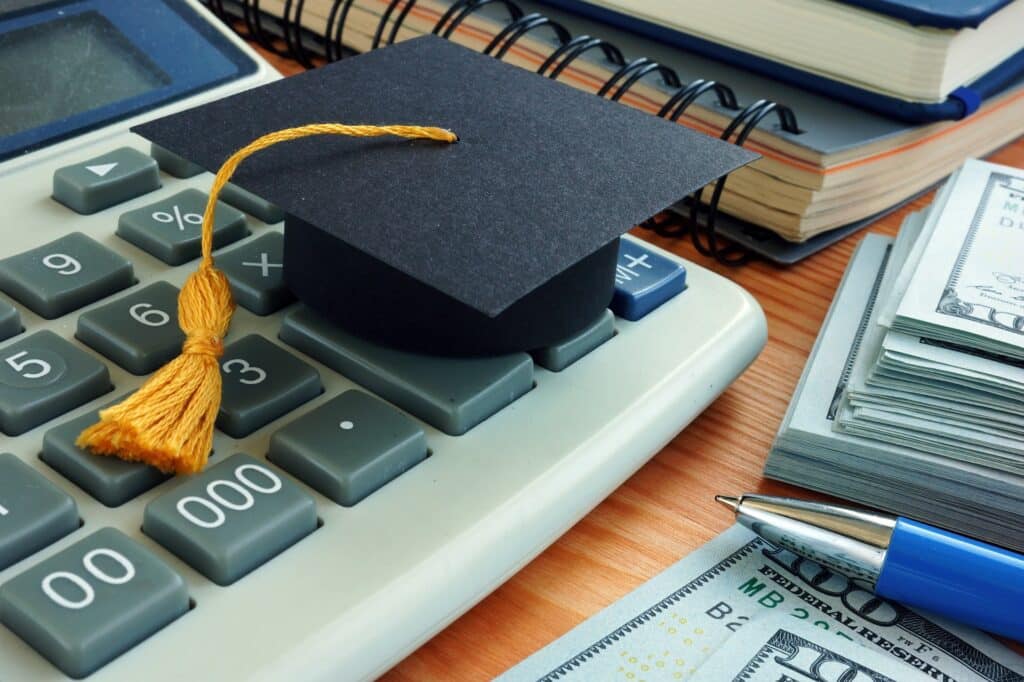If you are having a hard time staying on top of your financial situation, you are far from alone. Many individuals, families, and small businesses that were already struggling before the pandemic found themselves accumulating further debt in the past few years, leading to feelings of anxiety and hopelessness. However, you do not have to endure this stressful experience indefinitely—filing for bankruptcy can give you the fresh start you need to reset your finances and feel hopeful about the future once again. While Chapter 7 bankruptcy discharges several types of debt, such as credit card balances, medical bills, and certain tax obligations, many people wonder whether they can use this option to discharge student loans. The answer is somewhat complicated, so let’s take a look at how the Chapter 7 bankruptcy filing process works in New York and how you may be able to address your student loan debt.
What is Chapter 7 Bankruptcy?
Chapter 7 bankruptcy is the most common form of bankruptcy, as it aims to help individuals climb out of consumer debt. Those with a significant imbalance between their income and the amount of debt they have accumulated will likely benefit from Chapter 7 bankruptcy relief. Essentially, once you file a Chapter 7 petition, you are protected from your creditors collecting against you, suing you, etc. You receive a discharge about three months after the chapter 7 bankruptcy is filed and that discharge wipes away your dischargeable debt.
Qualifying For Chapter 7 Bankruptcy Relief in New York
To qualify for relief under Chapter 7, you must show that your income falls below the state’s median income based on your household size. You must also attend an online credit counseling course and obtain a certificate of completion before you file your bankruptcy petition. When you file your bankruptcy petition, you must provide the following information: a list of all your creditors and the amount you owe; a breakdown of your income, including the sources, amount, and frequency; a list of all your property; and a list of your monthly living expenses (i.e., rent, mortgage, utilities, taxes, food, clothing, etc.). The attorney will put all the paperwork together.
What to Expect During the Process
Once the court receives your Chapter 7 petition, a trustee will step in to review the paperwork you filed and will be the person you talk to during the court hearing. This court hearing is about one month after the bankruptcy is filed. Your attorney will be there with you. You will also be required to attend a second online, the debtor education class. When you complete these steps, the court will issue a discharge (order that wipes away your debt) about two months after the court hearing.
Student Loans and Chapter 7 Bankruptcy
Several types of debt can be discharged under Chapter 7 bankruptcy, such as credit card balances, collection agency accounts, medical bills, personal loans, past due utility amounts, and certain unpaid taxes. It’s essential to recognize that all debts are not automatically discharged by filing for Chapter 7 bankruptcy. Even after the court issues a discharge, you will still be responsible for child support and spousal support obligations, recent tax debts, and (in most cases) the student loan debt you have accumulated.
While outstanding past-due tuition owed to an institution may be dischargeable in Chapter 7 bankruptcy, student loans rarely are. Most student loans are funded or guaranteed by governmental agencies or nonprofit organizations, rendering it ineligible for discharge under most chapters of bankruptcy. In some highly specific circumstances, student loans funded by private, for-profit lenders may be discharged. If you want to discharge your student debt, you will have to take additional steps to show that the debt is causing an “undue hardship” to the petitioner. However, making this case can be extremely difficult, so it’s usually best to focus on the debts you are able to discharge by pursuing a Chapter 7 bankruptcy filing.
Compassionate Legal Guidance You Can Trust
Struggling with debt can be an isolating and even shameful experience, but you do not have to endure this challenging time alone. Enlisting the guidance of a trusted and caring Watertown, New York, attorney is the best way to get and stay motivated to regain control of your financial situation. Your attorney will never judge you for finding yourself in this situation—rather, their primary goal is to help you obtain the financial reset you need to face the future with greater confidence and ease.



